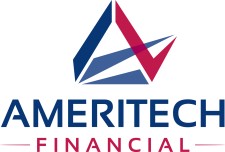Default Rates May Be High for Certain Populations, but They Are Not Inevitable, Says Ameritech Financial

Rohnert Park, Calif., April 19, 2018 (Newswire.com) - Besides a minority of Americans who choose to default on their student loans, defaulting is usually an outcome borne from a variety of factors. High debt and low income are big factors, but the type of school attended, whether a degree was obtained, and even gender and race can affect potential default rates of individuals. Ameritech Financial, a document preparation company that helps borrowers apply for federal repayment plans, reminds borrowers who are at risk of defaulting of the available federal income-driven repayment plans.
“Defaulting depends on a lot of different things, some of which borrowers can control and some that are out of their control,” said Tom Knickerbocker, Executive Vice President of Ameritech Financial. “This information can be valuable for lawmakers and states to propose changes to address shortcomings in the system, but borrowers themselves shouldn’t feel like default is inevitable if their situation matches those who default at a higher rate than normal.”
Defaulting depends on a lot of different things, some of which borrowers can control and some that are out of their control.
Tom Knickerbocker, Executive Vice President of Ameritech Financial
The commonly cited national default rates, which are at 11 percent, are for public colleges. Private nonprofit schools boast an average default rate of about 7 percent, while average rates for for-profit schools are higher, at about 15 percent. Black student loan borrowers also have a higher than average default rate, but there are many possible mitigating factors behind that statistic.
Each state has a different combination of those three institution types and student populations, so it follows that states have different default rate averages, as well. Massachusetts has the lowest average default rate, at 6.12 percent, and New Mexico has the highest, at 18.98 percent.
Residents of states with higher than average student loan default rates should not see these numbers as an indication of their future. Staying current on loan payments will prevent default. But even if that becomes difficult, federal borrowers usually have options. Federal income-driven repayment plans (IDRs) base payments on income and family size, resulting in a payment as low as zero dollars for certain circumstances.
“Every borrower should do his or her best to avoid default,” said Knickerbocker. “When low income or high payments get in the way of that, IDRs may help. At Ameritech Financial, we help borrowers understand and apply for IDRs to help get them in situations in which they can better afford to make their monthly payments to their loan servicer.”
About Ameritech Financial
Ameritech Financial is a private company located in Rohnert Park, California. Ameritech Financial has already helped thousands of consumers with financial analysis and student loan document preparation to apply for federal student loan repayment programs offered through the Department of Education.
Each Ameritech Financial telephone representative has received the Certified Student Loan Professional certification through the International Association of Professional Debt Arbitrators (IAPDA).
Ameritech Financial prides itself on its exceptional Customer Service.
Contact
To learn more about Ameritech Financial, please contact:
Ameritech Financial
5789 State Farm Drive #265
Rohnert Park, CA 94928
1-800-792-8621
customer.service@ameritechfinancial.com
Source: Ameritech Financial
